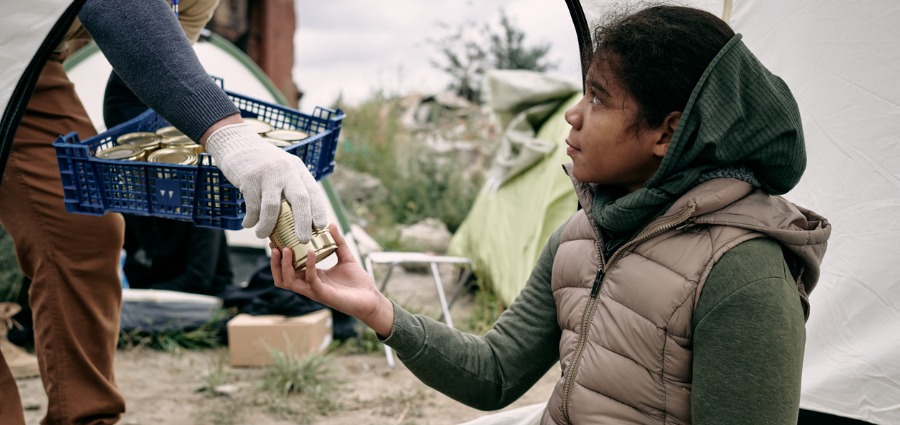
Learn more about our faith | Healing the family
In the Book of Genesis, we learn that Abraham’s life doesn't always go smoothly, even after God blesses him and his wife, Sarah, with a son, Isaac, in their old age.
In the first moment of drama, Sarah demands that Abraham send away his other son, Ishmael, who was born to him by their slave, Hagar. Understandably, Abraham “is greatly distressed.”
Like in other moments of Abraham’s life and ours, God hears and sees Abraham’s distress and says to him, “Do not be distressed about the boy or about your slave woman.” God goes on to promise that the boy will lead a great nation since he is the offspring of Abraham. We can assume that the boy will take good care of his mother, Hagar.
However, like in our own lives, there is more to the story. God will also teach Hagar and her young son to trust in Him, especially in the most dire of circumstances. As they travel “aimlessly in the wilderness,” they run out of water. Hagar has given up hope. So, she places her son under a shrub and then sits a great distance away because she can’t bear to see him die.
This is when Ishmael, the young boy, begins to cry. God hears him and sends His messenger, who says to Hagar, “Do not be afraid; God has heard the boy’s cry in this plight of his. Arise, lift up the boy and hold him by the hand; for I will make of him a great nation.”
I’m sure that Abraham had conveyed this very message of Ishmael’s future to Hagar, but she needed to hear it from God, just as we do. “Then God opened her eyes, and she saw a well of water. She went and filled the skin with water and then let the boy drink. God was with the boy as he grew up.”
Psalm 34 reminds us that “the Lord hears the cry of the poor.” Hagar and her young son couldn’t have been poorer. Not only did they lack the food and water to make their journey to their new homeland, but they also lacked direction to find it.
At times, we can find ourselves in similar situations to one degree or another. Our poverty can be material, physical, mental, spiritual, or some combination.
We may not even know we’re wandering or lacking in what we need to live good and holy lives. Perhaps our drifting from God has happened gradually, or maybe our life situations have changed rapidly, like Hagar and Ishmael’s, without warning.
God knows everything and loves every one of us. He even hears the cries of a child in the most remote of places. When we recognize that God is our creator, the source of all life, and our loving Father, it’s then that we can hear His voice in the Word of God, through His earthly messengers, and through the Holy Spirit.
We are never without hope; even if it seems that all is lost, it is in the silence and seeming emptiness of life that God hears and provides, giving us the water of life, the instruction to arise, and the hand to lead us to where He wants us to be.
May God bless you and your families this holy day as we remember, believe, and share that the Lord truly hears the cry of the poor.
Reverend David S. Marcham is the Vice Postulator for the Cause of Venerable Patrick Peyton, and Director of the Father Peyton Guild, whose members pray for Father Peyton’s beatification and spread his message of the importance of Family Prayer. Prior to becoming a seminarian, Father David was a physical therapist and clinical instructor, serving hospital inpatients and outpatients throughout the greater Boston area for eleven years. In 1998 he heard the call to priesthood and was ordained in the Archdiocese of Boston in 2005. Father David grew up in Quincy, MA, and has fond memories of playing soccer, tennis and running track. You’re never without a friend when Father David is around, as he welcomes everyone into his circle with a smile on his face!
